The week ahead in Parliament
- Published
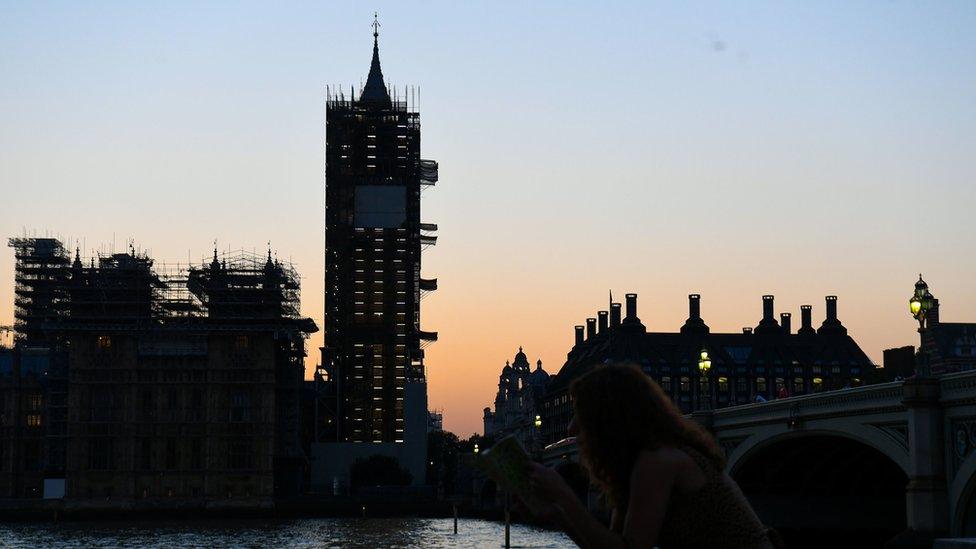
They're back!
I think it would be a rather foolhardy MP who used the half-term break in Commons action to top up their tan, or hit the ski slopes.
I suspect most were putting themselves about in their constituencies, and that this will lead to a lot of pointed interventions in the chamber about what they did and what they saw while the House wasn't sitting.
Expect the week to start with plenty of ministerial statements, updating MPs on the latest pandemic and Brexit developments - with the strong possibility that the regulations underpinning local moves to higher-tier restrictions will be put before them. This could mean some pretty uncomfortable debates for the government.
Meanwhile, Brexit rumbles on, with peers tooling up to fillet out key parts of the UK Internal Market Bill, amidst an unusually high level of cross-party cooperation between the bill's many opponents.
I don't expect hostile amendments to be passed this week, but, come 9 November, peers may take the unusual step of passing amendments at Committee Stage - signalling real problems for ministers in getting this measure through before the end of the Brexit transitional period, on 31 December.
Unless, of course, a deal with the EU gets them off the hook.
Elsewhere, here are five other things to keep an eye on:
Kings of the North - the Conservative backbench Northern Research Group is emerging as an interesting new player in the Commons; the title deliberately echoes the highly successful Brexiteer guerrilla operation that is the European Research Group, and the aim is to press for a bigger share of the cake for the Conservatives' new "Red Wall" seats, although this could end up being at the expense of traditional blue heartlands, and there's the rub. Ringmastering operations is the former minister for the Northern Powerhouse, Jake Berry, who aims to make a well-researched case for greater investment in infrastructure in those areas. There's a pleasingly 'Game of Thrones' vibe to the whole exercise.
Select Committee cull - with the annexation of the Department for International Development by the Foreign Office, the Commons International Development Committee, currently led by Labour's Sarah Champion, is set to disappear at the end of December, leaving Tom Tugendhat's Foreign Affairs Committee to scrutinise aid spending. At some point, the same fate will befall Hilary Benn's Brexit Committee. It's possible this may lead to some rejigging of the remits of other committees, but it also leaves Labour two committee chairs down in the share-out agreed after the last election, which is supposed to reflect the strength of the parties in the Commons. Will a Tory incumbent chair be asked to walk the plank to redress the balance?
Bong! - not heard since it rang in the new year in 2019, Big Ben (the great bell in the Elizabeth Tower) will be heard in test chimes to prepare for the Remembrance Day ceremony on Sunday 8 November, when it will ring out at 11:00 GMT
Agile Opposition Days - Labour's last-minute change of subject in their Opposition Day debate on 21 October led to a bruising Commons afternoon discussing the extension of free school meals, as advocated by footballer Marcus Rashford. The move was vindicated by a mini-rebellion on the Conservative side, and continuing hostile press coverage. But it was a bit of a breach of normal etiquette to change the subject at short notice, so I wonder if the government whips might find a way to extract some payback?
Object lessons - a series of Commons divisions on Covid regulations were forced by the Conservative William Wragg, who shouted "object" when the government attempted to get them through on the nod. Mr Wragg is a strong critic of the current government strategy, and an ex-whip who knows all the tricks; will there be more to come?
Monday 2 November
MPs return to their Chamber (14:30 GMT) for Defence Questions, probably to be followed by ministerial statements updating the House on Brexit and the progress of the pandemic.
That's followed by a general debate on Covid-19, which, depending on events, could be mundane or pretty spicy.
And there's an interesting-looking adjournment debate from Labour's Yvette Cooper, on support for rugby league during the Covid-19 outbreak.
In Westminster Hall (16:30), there's a debate on an online petition calling for a ban on selling fireworks to the public, which attracted 305,579 signatures.
After that, (18:00) they turn to another petition, which urges no prosecution for parents that remove children from school during a pandemic.
The petitioners want a law to allow parents to remove their children from school under such circumstances, without negative action by schools or local authorities, like the loss of the child's place in the school or even prosecution. This one attracted 100,649 signatures.
On the committee corridor, Public Accounts (14:30) takes evidence on specialist skills in the civil service, with Alex Chisholm, the Chief Operating Officer for the Civil Service and other top officials.
And Housing, Communities and Local Government opens its new inquiry into supporting High Streets with evidence from the Retail Consortium and the Royal Town Planning Institute (16:00).
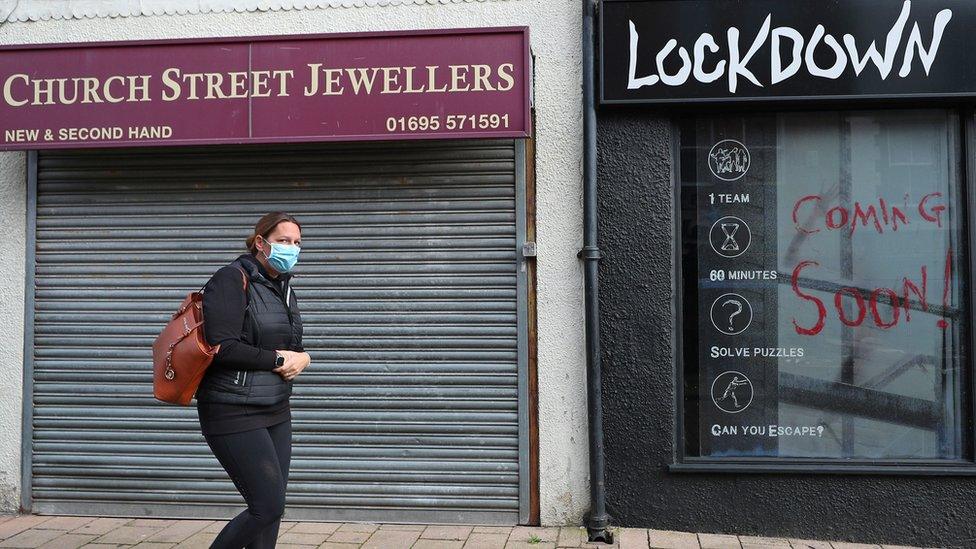
High streets have been hit hard by Covid restrictions and shutdowns this year.
In the Lords (13:00), ministers face questions about the human rights situation in Jammu and Kashmir, the publication date for the report of the government's investigation into bullying allegations against the home secretary, the 2042 target date for the restoring 75 per cent of terrestrial and freshwater protected sites to a favourable condition, and a fairer settlement for developing countries who lose out from tax avoidance by multinational corporations.
Then it's on to the main event, the third day of committee stage scrutiny of the United Kingdom Internal Market Bill.
The focus this week will be details on the Competition and Markets Authority, the independence of the Office for the Internal Market and the financial assistance powers in the bill.
Tuesday 3 November
MPs open (11:30) with Justice Questions, followed by a ten-minute rule bill from former cabinet minister Chris Grayling on labelling food for environmental sustainability.
The main legislative action is the report and third reading stages of the Overseas Operations (Service Personnel and Veterans) Bill, the measure to provide a "triple lock" against prosecutions of service personnel for human rights violations. Labour has a series of amendments down.
There are also amendments proposed by Labour MP Harriet Harman, chair of the Human Rights Committee, which would remove the presumption against prosecution which is a key feature of the bill.
Kevan Jones, a former Labour defence minister and now a member of the Intelligence and Security Committee, has also proposed amendments to bring in judicial oversight of historic investigations of service personnel.
In Westminster Hall (09:30), Jeremy Corbyn will make what could be his first appearance as an independent MP, following the withdrawal of the Labour whip, during a debate on the Rohingya refugee crisis and the impact of the pandemic.
In the Lords (12:00), questions to ministers cover the government's integrated review of security, defence, development and foreign policy, as well as standards for qualifications.
Quite an interesting internal debate follows, on the report from the Conduct Committee entitled "Valuing Everyone training; ICGS investigations - former MPs".
This is about closing a loophole in the system which means that allegations, for example, of bullying, harassment or sexual misconduct, against peers, which date from their time as MPs, cannot be investigated by the Independent Complaints and Grievance Scheme. The plan is that such allegations should be investigated under Commons, not Lords procedures.
Peers will then consider the Commons Reasons on the Prisoners (Disclosure of Information About Victims) Bill - the main ping-pong issue has been the Parole Database - but no vote is expected, which suggests agreement or at least acquiescence by a Lords majority.
Wednesday 4 November
MPs open (11:30) with half an hour of Northern Ireland questions, followed at noon by Prime Minister's Question Time.
The day's ten-minute rule bill, from the SNP's Gavin Newlands, is an attempt to outlaw "fire and re-hire" tactics by companies seeking to cut pay and conditions for staff.
The next business is two sets of Lords amendments, first to the Agriculture Bill, where peers continue to insist that new trade agreements should require imported food to meet UK standards.
They also want reports published on the impact of new trade agreements on agri-foods (they've dropped their call for the agreements to be policed by the Trade and Agriculture Commission).
Next up are amendments to the Immigration and Social Security Co-ordination (EU Withdrawal) Bill, where the issues include the right to family reunion and the treatment of victims of modern slavery.
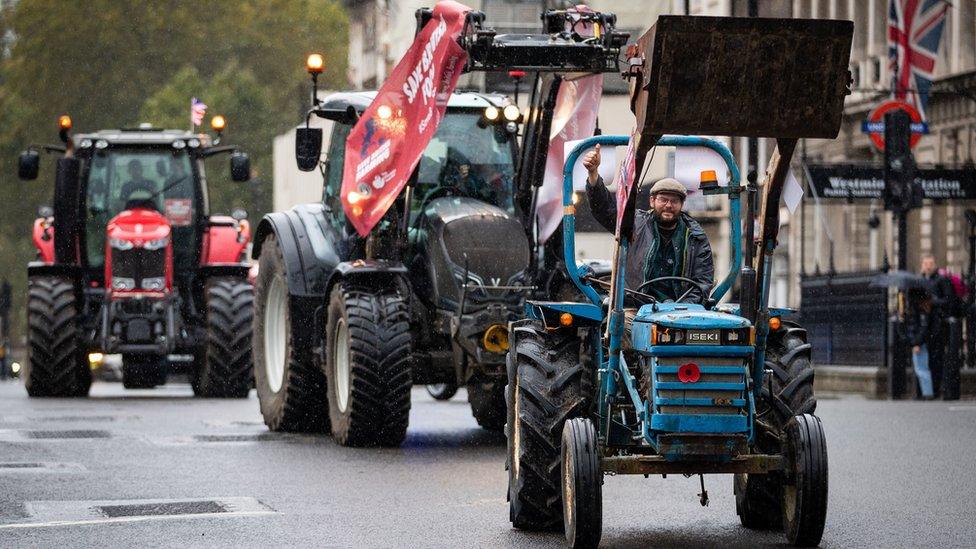
The Agriculture Bill has prompted protests in Westminster from farmers' groups.
In Westminster Hall, the Conservative Pauline Latham, a member of the International Development Committee, leads a debate (09:30) on sexual exploitation and abuse perpetrated by international peacekeepers and staff of non-governmental organisations.
Attention to this issue really began after the Oxfam sexual misconduct scandal in 2018.
On the committee corridor, Environmental Audit (14:00) takes evidence on the energy efficiency of homes.
In the Lords (12:00), ministers face questions on the support to accompany the new aircraft carrier HMS Queen Elizabeth's deployment to the South China Sea in 2021 - that's from former admiral, Lord West of Spithead.
Further questions cover the union between Scotland and the rest of the UK and ensuring changes to the planning system will deliver more accessible homes for people with disabilities.
Then it's back to the committee stage of the United Kingdom Internal Market Bill.
Thursday 5 November
The Commons meets (09:30) for forty minutes of Digital, Culture, Media and Sport Questions, followed by questions to the Attorney General, and the weekly Business Questions to the Leader of the House.
The remainder of the day is devoted to two debates chosen by the Backbench Business Committee, on the Coronavirus Business Interruption Loan Schemes, and on the UK's role in ensuring innovation and equitable access within the Covid-19 response.
On the Committee Corridor, Public Accounts (10:00) quizzes the permanent secretary at the Treasury, Sir Tom Scholar, and others about the Covid-19 Bounce Back Loan Scheme for businesses.
The Lords is not expected to sit - peers may not get a Commons-style week off, but they are having a long weekend.
Friday 6 November
MPs meet at 09:30 to debate private members' bills, starting with the second reading of Labour MP Paula Barker's National Minimum Wage Bill.
This aims to tighten up enforcement of the national minimum wage by, for example, requiring employers to keep detailed records, and in particular to end what she calls the scandal of domiciliary - or homecare - workers being discriminated against and denied their full entitlement under the law.
This often happens in the form of employees not being paid properly for so-called 'travel time' between individual home care visits.
Next up is the Trade Agreements (Exclusion of National Health Services) Bill, from the SNP's Peter Grant, which aims to prevent trade agreements leading to more privatisation in the NHS.
As ever, there are plenty more bills on the Order Paper - Peter Bone's Prime Minister (Temporary Replacement) Bill looks rather topical after Boris Johnson's incapacitation with Covid-19 earlier this year - but the likelihood is that there won't be time to discuss any of them.
And there could be a great deal of filibustering. I have the distinct impression that new Conservative MPs are being encouraged to contribute to Friday debates which give them a rare opportunity to make a speech that is more than three minutes long.
- Published10 October 2020
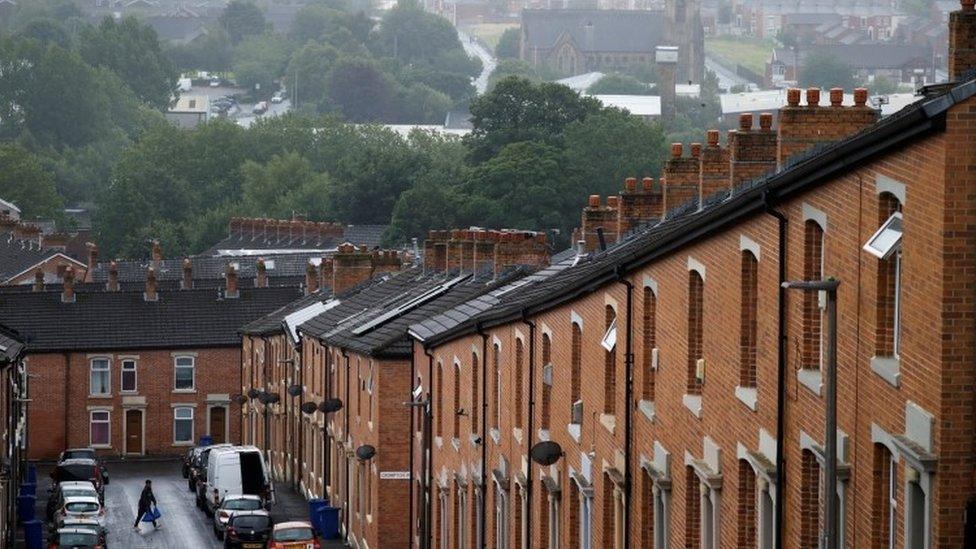
- Published19 October 2020
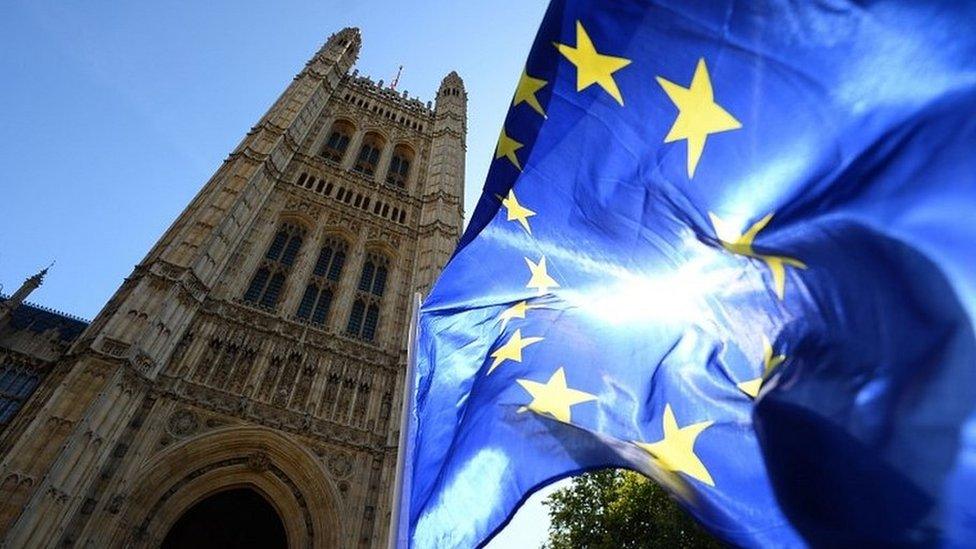
- Published26 January 2022

